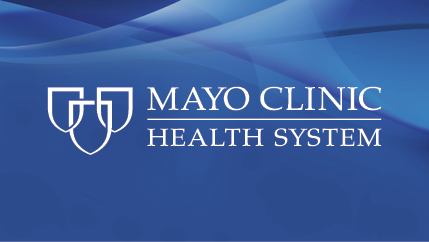Recent Posts
More than just a pill: Treating erectile dysfunction

Some men believe that a small blue pill is the only treatment option for erectile dysfunction. The truth is that medications are not the only tool in the toolbox. Many options relieve symptoms and lead to more satisfying sexual experiences.
The first step is to discuss your erectile dysfunction with your health care professional. Erectile dysfunction has many potential causes, so a complete physical examination and medical history can determine the appropriate treatment option for you.
Regardless of the cause, erectile dysfunction often can be treated successfully.
Self-care and prevention
Although most men experience erectile dysfunction from time to time, you can take steps to decrease the likelihood of occurrences by:
- Limiting or avoiding alcohol and drugs.
Alcohol and drugs can decrease blood flow to the penis and interfere with messengers in the brain during arousal. Over time, alcohol consumption can reduce testosterone levels also. - Not smoking or using tobacco products.
Smoking can cause plaque to build up in arteries throughout the body. This can cause poor blood supply to the penis. - Controlling your blood sugar level if you have diabetes.
Elevated blood sugar levels cause nerve and blood vessel damage, which significantly affects the ability to achieve an erection. - Seeking help to cope with anxiety or depression.
Erectile dysfunction can result from depression, stress, anxiety or fatigue, so managing these conditions may reduce your erectile disfunction symptoms.
Medical treatments
Medical treatments are appropriate treatments for erectile dysfunction caused by a physical condition or medication. Usually, less invasive treatments are tried first.
Medical treatments include:
- Changing usual medication
Some medications can cause erectile dysfunction. A change in medication may help, although finding an alternate medication that works best may take time. Never stop taking a prescribed medication, or change the way you take it, without first talking with your health care professional. - Hormone therapy
For men who have testosterone deficiency, testosterone replacement therapy may be an option. - Oral medication
Many men experience improvement in erectile function from phosphodiesterase inhibitors. These medications relax muscles in the penis and increase blood flow in response to sexual stimulation. These medications do not automatically produce an erection but allow an erection to occur as a reaction to physical and psychological stimulation. Examples include sildenafil (Viagra), tadalafil (Cialis), vardenafil (Levitra), and avanafil (Stendra). These medications can interact with other medications and are not recommended if you have certain medical conditions such as a stroke or recent heart attack. - Self-administered intraurethral therapy
Medication can be placed into the urethra and absorbed by the erectile bodies. The medication increases blood flow to the penis and produces an erection. - Self-injection therapy
Medication can be injected into the erectile bodies to increase blood flow to the penis and produce an erection. You use a fine needle to inject the medication into the base or side of your penis. - Vacuum therapy
This treatment uses an external vacuum device that encourages blood to flow into the penis, resulting in an erection. A tube is placed over the penis and a hand-held pump creates a vacuum in the tube. Once you achieve an adequate erection, you slip a rubber ring around the base of your penis to maintain the erection, and then remove the device.
For all medical treatments, discuss the potential benefits and side effects with your health care professional. Do not combine medications or therapies on your own or deviate from prescribed doses.
Surgical treatments
Surgical treatments are appropriate when erectile dysfunction is caused by nerve or blood vessel damage due to pelvic or spinal cord injury, pelvic surgery or radiation in the pelvic area. It's also an option for men who have tried medical treatments without success.
Surgical treatments include:
- Arterial surgery
Arterial bypass surgery is an option if erectile dysfunction results from injured arteries that carry blood to the penis. These procedures are rarely performed, and long-term results are limited. - Penile implants
This treatment involves surgically placing a device, or prosthesis, inside the penis to produce an erection when you wish. Everything is concealed in the body. While this device will never replace a natural erection, it provides high patient satisfaction rates when natural erections are not possible.
Several types of penile implants are available. The most common type is called a three-piece inflatable prosthesis. This has two inflatable cylinders that are placed inside the erectile bodies of the penis and are controlled by a simple pump inside the scrotum. In addition, there is a small fluid filled reservoir inside the abdomen to hold the fluid when not in use.
The inflatable device allows a man to shift fluid from the reservoir into the penis on demand, making the penis firm for intercourse. When done, a release valve allows the fluid back into the reservoir. This type of device offers the most natural type of on-demand erection.
A two-piece implant is like the three-piece device, only there is no reservoir in the abdomen. This can be an option for someone who has had multiple previous surgeries. Semirigid devices are available, as well. These devices don't have to be inflated or deflated, and some men may prefer them.
As with any surgery, there is a small risk of complications like an infection. Talk with your health care professional and your surgeon about the risks and benefits of your surgery.
Psychological counseling
Counseling is an appropriate treatment for erectile dysfunction caused by psychological factors. You, or you and your partner, may meet with a psychologist, psychiatrist or other counselor trained to treat sexual problems.
Short-term education therapy is often most helpful. In one technique, the couple focuses on physical sensation and pleasure rather than on performance. A goal is to remove self-evaluation and decrease performance anxiety. This technique often has good results, especially if both partners are understanding and cooperative.
Work with your health care team to determine the best treatment option for you.
By Mayo Clinic Health System staff





